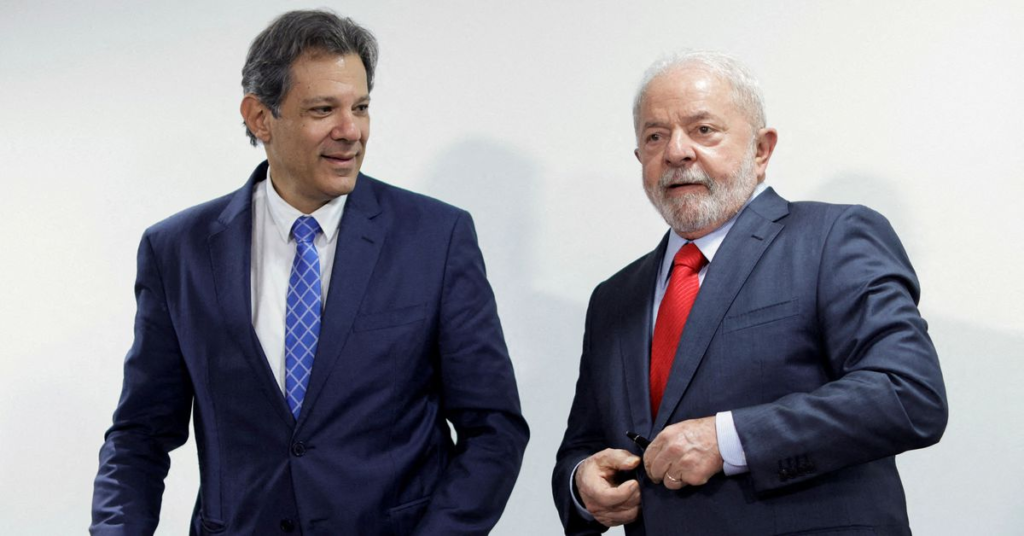BRASILIA, March 29 (Reuters) – Brazil's new fiscal framework targets a zero primary deficit in 2024, followed by surpluses in subsequent years, as President Luiz Inacio Lula da Silva seeks a sustainable trajectory for the country's public debt, government sources told Reuters on Wednesday.
The primary surplus will be equivalent to 0.5% of GDP in 2024, rising to 1% of GDP in 2025, one of the sources said. The new framework will combine a target for primary results with a spending rule and will have adjustment mechanisms in case of noncompliance.
"It is a target with bands, associated with a spending rule where expenditure cannot grow by more than 70% of revenue," the source said, adding that there would be a cap on annual expenditure growth.
The sources spoke anonymously because the topic is being addressed in private conversations with members of Congress.
The framework is scheduled to be presented on Thursday at 10:30 a.m. local time (1330 GMT), the Finance Ministry said later on Wednesday in a statement.
The framework is needed to ease fiscal concerns after Lula secured congressional approval for a multi-billion-real package that bypasses the constitutional spending cap so his government can boost social spending and fulfill campaign promises.
This year's primary deficit target, the first of the leftist Lula administration, is 228.1 billion reais ($44 billion), but the Finance Ministry recently estimated that the shortfall will be 107.6 billion reais, equal to 1.0% of GDP, helped by a jump in expected tax revenue.
Earlier on Wednesday, Institutional Relations Minister Alexandre Padilha said the government was finalizing the new rule, adding that Lula and Finance Minister Fernando Haddad would meet to do so. Haddad is expected to present it to leaders of the lower house of Congress later in the day.
Talking to reporters, Padilha said that the leaders of Brazil's Congress have indicated that, once submitted, the fiscal rules should be approved quickly.
($1 = 5.1351 reais)
Our Standards: The Thomson Reuters Trust Principles.
Thomson Reuters
Reports on the macro beat, covering economic policy in Brasilia. Bernardo studied journalism at the Pontifical Catholic University of Minas Gerais before completing a specialization in Economics at Fundação Getulio Vargas (FGV) and an MBA in Economic-Financial Information and Capital Markets at Fundação Instituto de Administração (FIA) in Sao Paulo. He previously worked in Brasilia for Folha de S.Paulo, Agencia Estado and the Globo’s G1 website.
Reuters, the news and media division of Thomson Reuters, is the world’s largest multimedia news provider, reaching billions of people worldwide every day. Reuters provides business, financial, national and international news to professionals via desktop terminals, the world's media organizations, industry events and directly to consumers.
Build the strongest argument relying on authoritative content, attorney-editor expertise, and industry defining technology.
The most comprehensive solution to manage all your complex and ever-expanding tax and compliance needs.
The industry leader for online information for tax, accounting and finance professionals.
Access unmatched financial data, news and content in a highly-customised workflow experience on desktop, web and mobile.
Browse an unrivalled portfolio of real-time and historical market data and insights from worldwide sources and experts.
Screen for heightened risk individual and entities globally to help uncover hidden risks in business relationships and human networks.
All quotes delayed a minimum of 15 minutes. See here for a complete list of exchanges and delays.
© 2023 Reuters. All rights reserved

